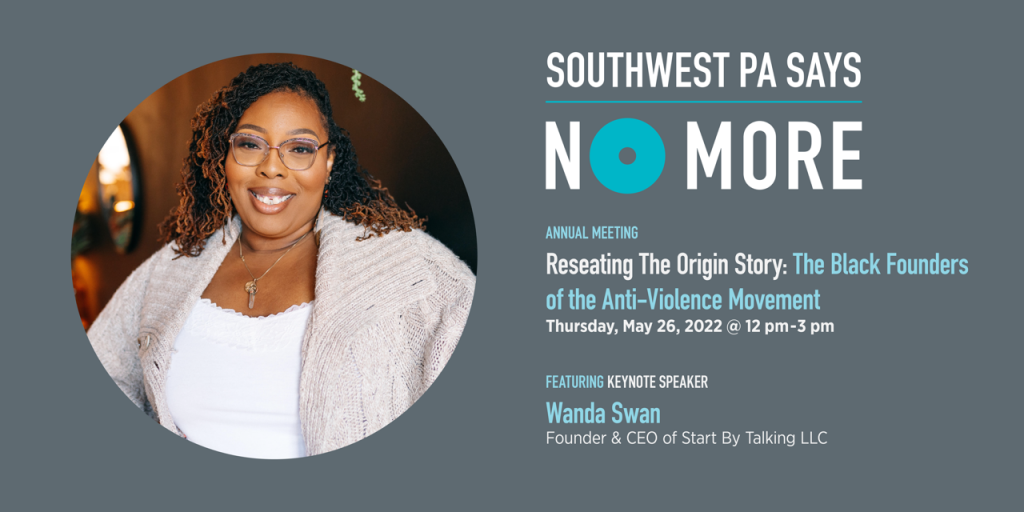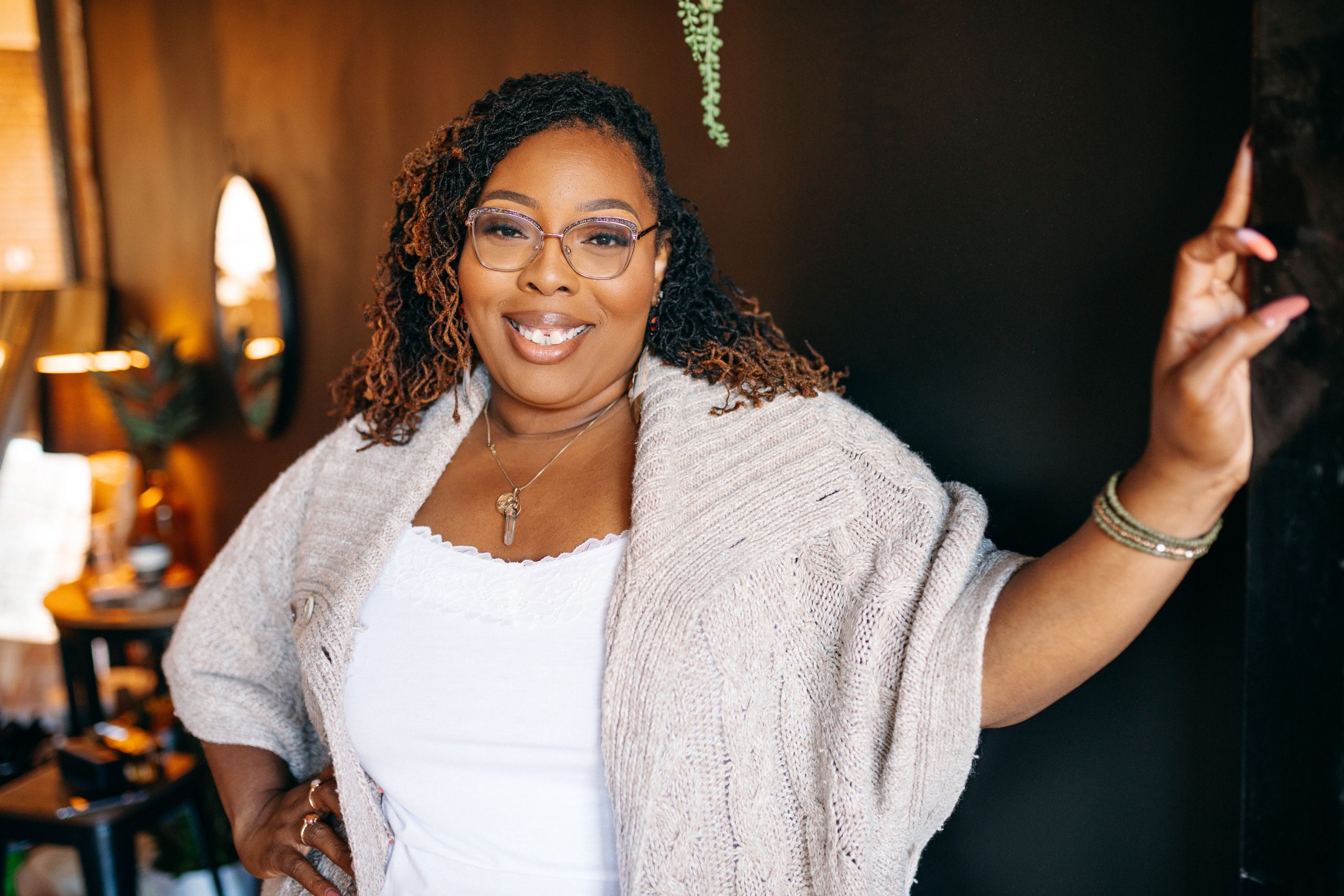2022 Southwest PA Says NO MORE Annual Meeting Recap
Reseating The Origin Story: The Black Founders of the Anti-Violence Movement
On May 26th, Southwest PA Says NO MORE celebrated our 2022 annual meeting with a keynote: The Black Founders of the Anti-Violence Movement.
Kristy Trautmann, Executive Director of FISA Foundation, opened the meeting by acknowledging the ongoing violence in America, recent hate-based crimes born out of systemic racism, and the 2nd anniversary of George Floyd’s death and thanked the over 100 attendees for their work to bring justice, equity, and inclusion to the world.
Because anti-violence work is a community effort, she opened the floor to participants and asked:
What have you learned in the last couple of years that has changed how you engage in your anti-violence or prevention work?
“We are much more focused on intersectionality and racial equity and funding community/societal prevention efforts vs relationship-based ones.”
“The last couple of years really highlighted a lot of inequities we already knew existed and it’s helped me understand/see intersectionality in a way I hadn’t before. We’ve really started to go beyond the individual level with our violence prevention work to expand to reaching whole communities.”
“I learned that anti-violence is rooted in the dismantling of white supremacy.”
“There is great power in the collective work we do together to prevent and educate. It is vital to our work that we are stronger together with a collective voice and centering those impacted by our work.”
Focus on Vulnerable Populations
Southwest PA Says NO MORE highlighted our recent focus on issues of violence and abuse facing some of the most vulnerable populations in our community.
In the past year, we focused on people with disabilities and the risks they face for many different types of abuse. Last fall, FISA Foundation partnered with Vera Institute of Justice to produce a series of webinars to raise awareness about different forms of abuse against people with disabilities. The webinar recordings are available to view on demand (scroll down to find programs about human trafficking, campus sexual violence, and disability justice). In addition, East Suburban Citizen Advocacy, a disability advocacy organization, and Blackburn Center, a victim service organization, collaborated to produce a short video by and for people with disabilities to introduce conversations about different types of abuse. Abuse: There is Support (4:19) is available to educate individuals and the community and is available for public use. Additional videos will be added to the series over time.
Twanda Clark-Edgal, the Chief Program Officer at Gwen’s Girls, discussed the prevalence of commercial sexual exploitation (CSEC) of Black girls. Gwen’s Girls’ recent webinar explains what this looks like in our communities and the issues facing these young girls, including the long-lasting trauma that survivors bring with them into adulthood.
We also highlighted the work of STANDING FIRM, a national program of Women’s Center & Shelter, focused on engaging employers in addressing domestic violence as a workplace and workforce issue. The Survivors Speak video features local victims of abuse talking about the ways abuse at home impacted them at work; it was a powerful and moving message. Beth Lewis, director of STANDING FIRM, also premiered a new report: Employers Addressing Partner Violence in the Workplace, which provides a roadmap to action for companies. The report was compiled after this spring’s annual Leadership Breakfast to Prevent Domestic Violence. 
Reseating the Origin Story
Finally, we were honored to listen to a moving keynote by Wanda Swan, a nationally recognized thought leader in survivor advocacy, anti-oppression work, restorative justice, and violence prevention. Her talk, Reseating the Origin Story: The Black Founders of the Anti-Violence Movement, addressed the role of Black feminist abolitionists whose strategies, experiences, and activism laid the foundation for the anti-violence movement and field. She also highlighted the action steps we can take to ensure we center Black voices as we say NO MORE.
One participant remarked, “I have learned that it is alright not to have all the answers at times, but to continue to learn. I have found more so than ever that collaboration is key in anti-violence work.”
And another added, “Learning about White supremacy cultural norms has really supported me in changing my approach and strategies in engagement for anti-violence work and how to take an intersectional and nuanced approach at ending violence in our state.”
If you missed the keynote but want to learn more, these are resources provided by Wanda Swan:
- Website: startbytalking.mykajabi.com
- Check out the Podcast: Come Get Your White People
- Read the Blog: The Black Hand Side
- Email Wanda: sbtinfo@wanswan.com

